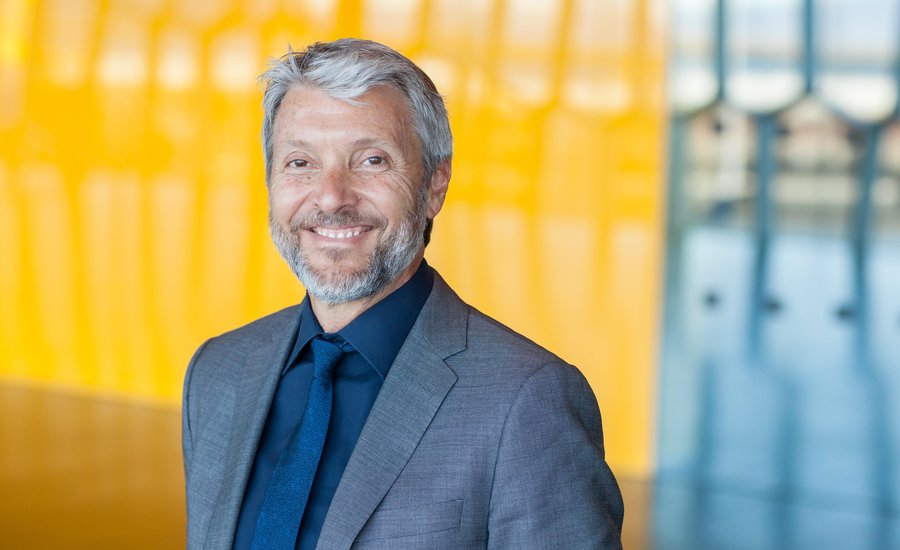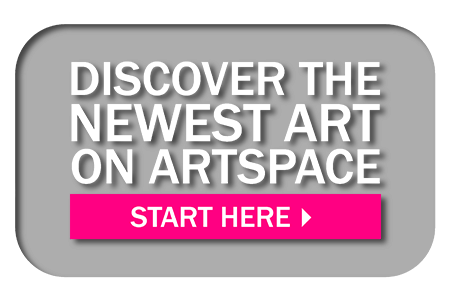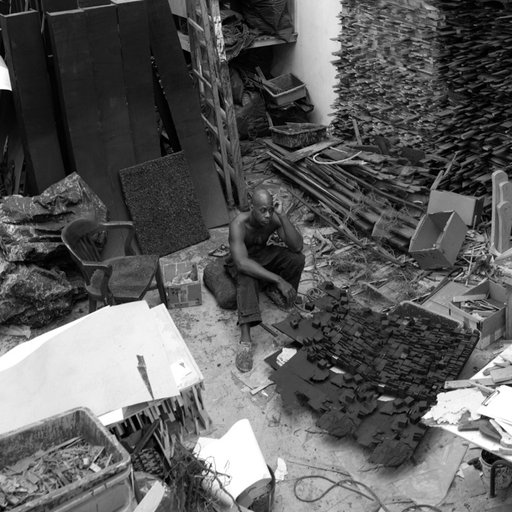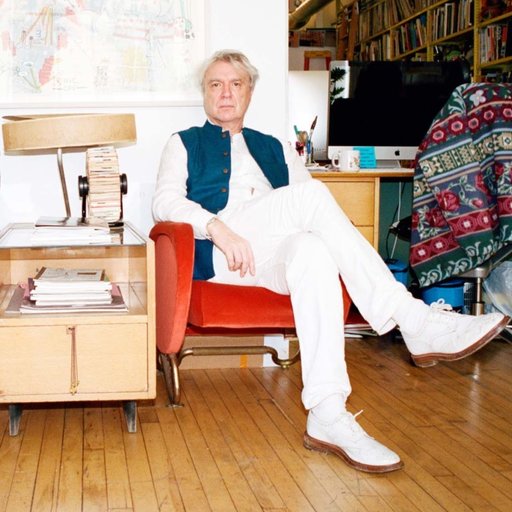Progressive strides in the fight for gender equality have largely been the triumphs of women feminists, who for decades have been earning the justice we deserve one demand at a time. But the dismantling of the patriarchy requires going far beyond policy to inspire a large-scale upending of societal values, hierarchies, and familial structure—and if it's going to become a total reality, we can't ignore the fact that men play important roles in how we as a global society understand gender and equality. Promundo tackles the issue by focusing on how men and boys can be responsible partners and advocates for gender equality, engaging communities to open conversations about how manhood, masculinity, and boyhood can and should be healthier.
Luckily, there are many ways to support the important work Promundo is doing around the globe—and one of them involves an incredible opportunity to acquire works by some of the most sought-after women artists of our time. Artspace and Phaidon have partnered with Kering, a global luxury group committed to the empowerment of women, to produce a portfolio of prints by Cecily Brown, Lubaina Himid, Bharti Kher, Catherine Opie, Jenny Saville, and Dana Schutz—six artists featured in Phaidon's brand new book Great Women Artists. The most extensive fully illustrated book of women artists ever published, Great Women Artists features more than 400 artists from more than 50 countries and spanning 500 years of creativity, and reflects an era where art made by women is more prominent than ever.
Proceeds from the portfolio (new and established collectors can collect one edition by their favorite artist, or all six for the entire suite) will benefit Promundo and the work they do to advance women's rights and gender equality through educating men and boys. Here, Artspace's Loney Abrams speaks with Gary Barker, Promundo's President and CEO, to discuss how the portfolio will directly promote healthier masculinities.
The Great Women Artists portfolio benefits Promundo, which promotes gender equality through engaging with men and boys. This book is about women; why should we be focusing on men and boys when we’re talking about gender equality?
The benefits of and the urgent need for gender equality are things that women live and feel everyday. What's clear to us, is that to achieve gender equality, we need men and boys to be part of the equation—either by stepping out of the way, or by stopping using violence and harassment, doing our share of the care work at home, and making room for and stepping aside for women's full leadership. Creating a world that offers women and girls the full and equal spaces they deserve needs us to call out men and boys, and that's what Me Too has been powerful in doing, but it also needs us to call men into. We must live and breath and support gender equality at all levels.
Just browsing your website, I was blown away with the number of projects that Promundo does all over the world. To get a sense of some of the things you do, can you briefly describe a couple of Promundo’s initiatives specifically?
Sure, I'll highlight two of our flagship programs. One is Manhood 2.0, and that's our approach to engaging young men in critical discussions about masculinities. We've partnered in more than 35 countries to engage critical reflection, whether in schools or after-school programing, sports programing, or vocational training programs, and together with youth-led activism, which is sometimes young men alone, and sometimes young men together with young women. We've worked with ministries of health and education to embed this in existing government services. How do we bring young men along, and how do we do that together with activities to empower and support young women?
Our other flagship has been around issues of men and fatherhood. If we take a global average of who does the care of our homes and children and elderly—and all the stuff that happens outside the paid workplace—women and girls do three to three-and-a-half times more every single day. Depending where in the world, that may be the biggest impediment to women being in the world, whether it’s the paid workplace in leadership positions, or in leadership roles in their communities. It's the care burden that we know that holds women and girls back. So that campaign is about men and boys doing our full share—nothing less than an equitable share of doing the care work at home, as well as involved, nonviolent, gender-equitable parenting.
Based on your experience and Promundo’s research, what kind of response and feedback are you getting from the men in the communities you serve?
It depends on where, but in much of the world, when we start a conversation about manhood, many men are like, Wait, we're not supposed to talk about this; this is not something that you talk about. One of the ways that manhood and patriarchy work is by not questioning these things. Many boys and men have experienced moments where they tried to step in and question, and they got pushed back by other guys who said were… fill in the blank. So for a lot of guys, it's the first time they’ve taken a step back as we ask, How's that manhood going for you? And how do you think it's going for others around you? This Me Too moment (and other moments in amazing women's rights advocacy) has led some men to go, Oh, there's something's up, but we're not quite sure what to say, and I'm worried I might get called out. That’s when we say, let’s talk about this. Let's think about what this means for us, what it means for those around us, and how we can be allies to achieve gender justice together with women and girls and activists working in the LGBTQ spaces.
Promundo is very clear in its messaging that it sees men as part of the equation, but not as champions. [“We promote men’s involvement as allies who speak out together with women for gender justice, never for women or instead of women.”] Can you please expand on this?
We definitely believe that male leaders—politicians, celebrities, sports figures, men who are leaders in their communities—need to speak up and speak out on these issues, whether on violence or harassment, or the need to promote women's leadership. But that can too often fail to go beyond the level of inviting two famous men in who do their talk and then go on, and life goes back to the status quo of inequality.
The other thing that can happen is that since we're socialized as boys and men to think that we're in charge, we can also think we're in charge of gender inequality. Instead of being the man on his white horse coming to save the day, we're coming in to add our voices to what amazing women activists have done for a couple of centuries to say patriarchy and gender inequality make the planet worse. We need to arrive at this table as men saying we honor that past, we honor that activism, and our role is to add our voices—not to say I'm here to save the day. And we need to be really careful that when we walk into the room as men, we share the space, not fill the space and take the space away, which we're really good at, because we've had centuries of doing it.
For our male readers who aren’t likely to directly receive guidance from a Promundo initiatives, do you have any tips on how they can play supportive roles in gender justice? What can they do to promote gender equality and take responsibility for their own relationship to the patriarchy?
Listening is probably the first step. How can we, as men, not arrive thinking, I've got the answer to how to do this. How we do we listen to women's lived experiences, and use that to figure out what we do? When men say, I’m confused and don’t know what to do, the first thing is, we have to have a bit of humility, and stop and listen.
The next phase is: reflect about power and privilege, and the responsibility we have to speak up. Not all men harass or assault, and we can say, maybe you don't (and most men don’t), but we've got a collective responsibility to recognize our privilege and to add our voice to say, things are not okay until every man stops carrying out those forms of violence, or harassment, or oppression—and until we achieve gender equality.
Keep listening, keep reflecting, and then the action part is: speak up! We've got to speak up to other boys and men when we hear sexist language, when we see harm being done, when we see harmful silence being carried out—to say, Guys, that wasn't okay, we all just sat there when that stuff went down. Together with speaking up is advocating for women candidates, women leadership, paid equality in the workplaces where we work. So listen, reflect, speak up, and act up.
And finally, understand how the daily organization of our lives continues to favor men. We get more time to be outside the home, to do our leisure stuff, to advance our careers and education, because we do a lot less of the work at home. We need to recognize who does the caregiving—who cares for our homes and our bodies and for our children—and we really need men to step up.
The luxury group Kering is helping to produce the Great Women Artists portfolio. Earlier this year on International Women’s Day, Kering hosted a dinner party, where they announced tangible actions the company is taking to support women, like 14 weeks of maternity leave, insurance benefits for medical-care service for transgender employees, and last but not least, the launching of Promundo’s Manhood 2.0 curriculum. Can you tell us how Kering has benefited Promundo, and more specifically, what the Manhood 2.0 project aims to achieve?
Kering’s history, led by their corporate leadership, has been focused on ending violence against women and girls. Through their Foundation, they came to Promundo early on because we've been in this space developing evidence-based interventions for the last 20 years around the world, and also more recently with our office in the US. Our partnership has asked, How do we scale up good evidence-based approaches? They’re supporting us for a Manhood 2.0, and then they also challenged us to turn the volume up on promoting healthy boyhood. We can't wait to start talking about healthy masculinity until boys become teenagers, and then adults. This needs to be there, of course, but we're talking about going upstream in terms of how we raise our sons. What can Promundo do about that? In the next few months we’ll launch what we've been developing with the Kering Foundation: a new global campaign around promoting healthy, respectful boyhood. It acknowledges that the seeds of the harm and the silence that too many adult men continue to carry, really starts in boyhood. So together with Kering and other groups that do fantastic work around empowering girls, we're going to turn up the volume on promoting and building healthier ideas about manhood, starting with younger boys.
How will the sales of the Great women Artists portfolio directly benefit Promundo? In other words, how will the funds be used?
The funds will go towards the boyhood campaign that I just mentioned. The idea is that we're using existing evidence-based approaches, that includes Manhood 2.0, as well as designing new ones and partnering with key groups to reach coaches, parents, teachers, and entertainment producers—looking at who makes boyhood. How do we promote either healthy ideas about boyhood or how do we too often inculcate negative ideas from manhood early on in boys. So the idea is we're using funds that will come from this project and others that we have from the Swedish government to really do a global multi-country approach to saying we can promote healthier boyhood. We'll be reaching boys through the sectors of school, sports, home (parents), and then also change the content together with the Geena Davis institute, one of our partners, to change how Hollywood and media produces change messages that boys look at. We think it has got the potential to reach millions of boys via the sectors that I just mentioned. So, that is really what are promise is: as we continue to empower girls, we need boys alongside them who live and breath respect and consent and healthy ideas of manhood.
[gwa-book-module]























